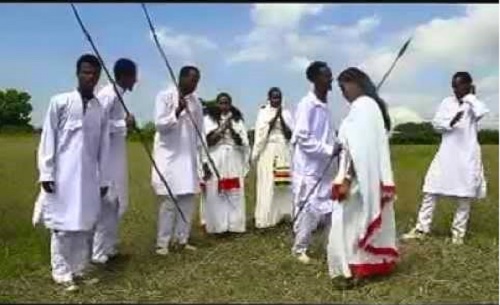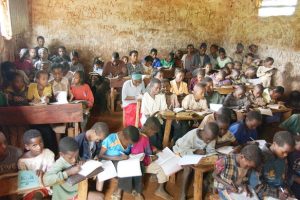
BY LEULSEGED WORKU
It is not exaggerating to say Ethiopia is a mosaic of nation, nationalities and People. This diverse identity did not come either by force or by other means. It is due to their deep-seated cultural practices- tolerance, peaceful coexistence, and mutual respect among others- that bind the different people of the nation to live in peace and harmony.
The various cultural practices Ethiopians have are truly manifestations of this cultural harmony. No matter how large or small the size of a given society is, there is always a cultural tolerance and respect among Ethiopians. Marking special days in harmony with other nations or nationalists is a good indication of this tolerance.
The Shinasha people are among the various ethnic groups that live in the State of Benishangul-Gumuz. Like other ethnic groups, the Shinasha people have a special socio-cultural structure and practices that distinguish them from others.
The ‘Gaaro Woro Festival’, which heralds the beginning of the New Year and celebrated colorfully and warmly in the month of September by Shinasha people, is the one. Since Gaaro has a special place among the Shinasha people, all the community prepare themselves to mark the day months before the actual day. The community starts preparation for the Gaaro rituals two months before, when they sense new agricultural production, and when the dark, rainy season is replaced by the bright sunny day.
Among Shinasha community, there is no any discrimination in cherishing the festival. Every individual is part and parcel of the day: men, women, youth, and children will actively engage to celebrate the special day- Gaaro.
Marking this day has a special meaning among every individual in Shinasha people. For this reason, the day and the place to celebrate the New Year is selected by elders. For that reason the elders will announce the beginning of the celebration; and the special place- which is called Gaari-Jaba. This place is intentionally selected by elders from the three Shinasha clans-Endi, Ennoro and Do`o.
According to the culture of the Shinasha people, selection of the Gaari- Jaba is accompanied by moments of prayer to members of Shinasha elders who passed away. After the prayer, the actual celebration will be announced by elders.
Among other practices, praying to God to bless the land and the people is the significant one. They pray to the Gaaro seeking blessings from God- offer thanksgiving for the past year; and pray for the coming New Year/Gaari-Woro to be a year of happiness, love, prosperity; peace and stability not only to members of the community as a whole, but also for people elsewhere and the country.
As to documents, the celebration of Gaaro has three phases. The first starts from the end of the month of July to the eve of Gaaro’s actual day, the second, from the eve to the actual day celebration. The third stage from the actual day until two-week aftermaths. In these three stages, various songs, related to the New Year, will be singing.
According to Abebe Ano, who wrote his paper on Gaaro Festival, there are conditions in which individuals celebrate the festival in their own home in accordance to their ability to provide refreshments to invited neighbors and families; like food and drink.
One of the significant activities prior to the actual day of the festival is preparation of 4-12 sticks that have been cut off from a tree and used for burning edible new crop items like corn and related crops. They are also put wood in front of the house.
Then, on the eve of the holiday, they burn wood which is September 26. During this period, the major theme of song revolved around welcoming in the New Year. This celebration is known as “Gaari-Ginda-Gada” in the local language. At the same place, individual members of society gathered at one place and celebrate the ceremony.
Shinasha tribes have their own socio-economic and cultural practices that reflect their social and class distinctiveness from other people of Ethiopia. That means in other words, they have their own culture, cosmology, belief system and language without any script until the last decade of the 20th century. However, recently they developed their own script. In Shinasha societies, there is no rigid social stratification. Economically, they are agriculturalist society (land shifting cultivators) in the borderland of western and northwestern Ethiopia.
The Ethiopian Herald September 30/2022





